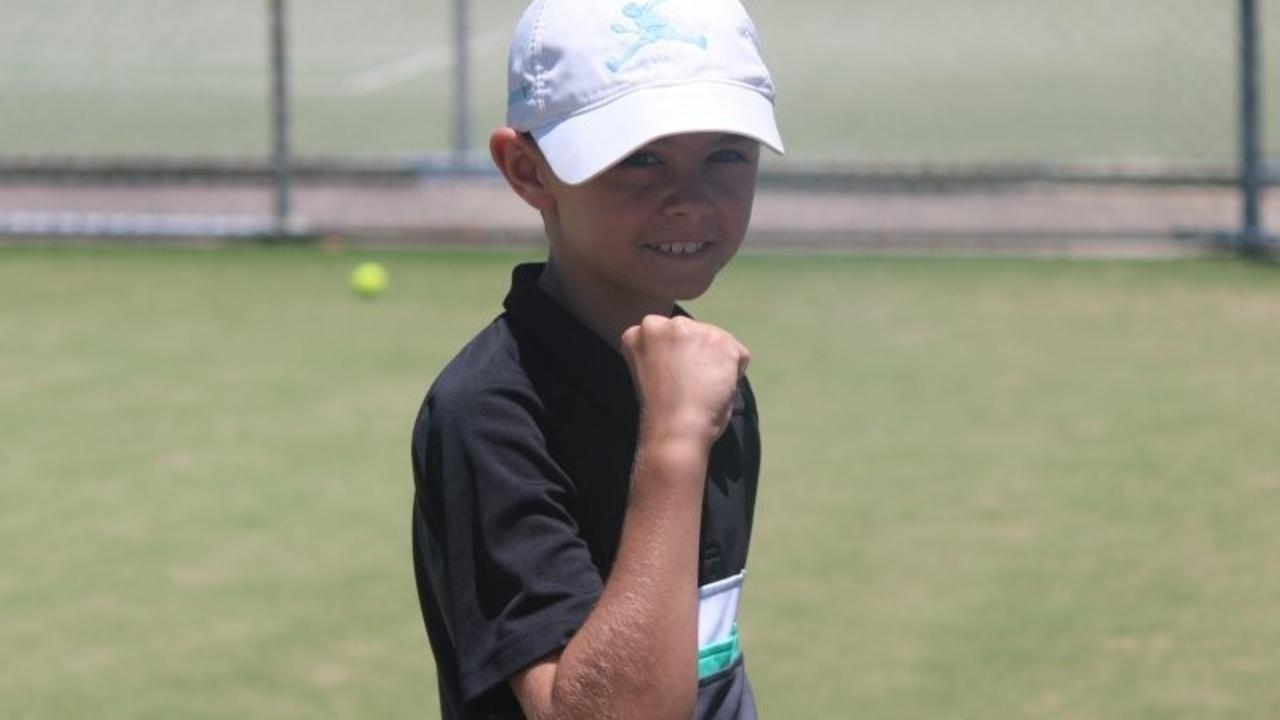When Training for Tennis - How To Build Tennis Resilience in Kids
Aug 12, 2020
Late last year we enrolled our 6-year-old daughter into Athletics. During her first few sessions, she found it challenging to compete and did not know how to handle ‘not winning’. This was really exciting for us. We have since had the opportunity to have multiple conversations and experiences that are enabling her to become more aware of the journey, rather than the result and also the importance of becoming resilient through every challenge she encounters. It is tough as a coach, parent, mentor, etc, to get through and make an impact at times. I have found following some basic principles helps the process.
Anyone who has been following us knows how important we feel about building resilient young players. As much as we want to produce amazing tennis athletes, more so we want to help produce amazing young people.
These days it seems people are over-concerned about the result (winning) and losing is deemed as bad, it is not a stigma I want to be attached to my athletes, especially not my own little athlete! The facts are players will most probably lose as much as they win, so possibly 50% of the time they will lose. Taking this into consideration we should realize how important it is to deal with losing or any challenging time in the most beneficial way. It is critical in producing happy, positive players.
I remember growing up and losing all the time, it drove me to be better and there was nothing better than finally beating those in front of me.
I can tell you one thing, I couldn’t have developed that mindset without the constant dedication of my parents and coaches that encouraged me to just try my hardest and be willing to learn. I was never the most gifted athlete, but I prided myself on working as hard as I could, I still do to this day, this mindset has always served me well.
Over the last few years, I have realized as important as knowing how to perform great tennis exercises and motivating people is, I have found the real impacts are made building up a player’s resilience. Encouraging them to get up and keep going and letting them know it's ok to get knocked down. Encouraging them to put themselves in challenging positions, both physically and mentally I feel is important. Letting them know it is ok to try and not succeed because sometimes success is just getting them to try. It builds character and inner strength. Watching opportunity pass by achieves nothing, trying, and failing delivers lessons and can fire up a willingness to try harder. Showing players how to get back up, learn, and be better. This is one area I love about training for tennis.
Helping players realize - You do not have to be the best, you have to do your best. The result will be what it will be. This is the attitude I want in every player that is doing tennis fitness training.
How To Build Tennis Resilience in Kids
Having started Tennis Fitness and working with young players over the past 25 years I have found it important to follow a few principles to help build resilience, I want to share some of them with you today. As simple as they are and as many times as you may have heard some of them, I encourage you to follow them, even if you follow 2-3 of them, you will make an impact;
- Focus On The Journey, Not Today's Result - Learning and progress should always outweigh a result or group of results. It is what you are building that is important and every day, every session, every match is an opportunity to learn and add to the building process. Think "I am building a player, not tearing one down". How can you in every moment, every decision do that to the best of your abilities?
- Keep It Real - What is the player's reality? Having conversations around the following topics is important - Are giving this your best effort? What can you do better? What does the word resilient mean to you? On a scale of 1-10, how resilient would you say you are? all you want to do is open the door for conversation around resilience. Creating awareness is one massive step forward. Explain your interpretation of resilience and give some examples of your own life or a story of someone else (young players love stories).
- Off-court training - Off-court training for tennis is a great tool to use to create an environment for building mental resilience. It is generally less technical based and more physically based so we can encourage players to just go for it and push themselves as hard a possible. Exposure to these environments creates a better understanding of what they are physically capable of, this generally crosses over onto the court.
- Concentrate On Enjoyment - Kids will stop coming if it isn’t fun and challenging. I believe sessions should have flow and be in a constant state of movement and engagement. Players are more inclined to push themselves when the stimuli is challenging and engaging. If you cannot make training fun, challenging (players liked to be pushed), and rewarding, you’re doing something wrong. Learn how to do it.
- Set Incentives - Very attainable goals to start with and give praise when they are achieved, then progress the goals. Tip - Most kids do not know what a goal is, they generally do not care for them at a young age. What they do care about is getting something really cool when they can achieve something. So explaining the process using their terminology is important. This generally gives you the opportunity to get them working hard without them realizing it.
- Encourage Failure - Challenge players to put themselves in hard situations, situations they really should not win or be exceptional at. This is how players get used to being uncomfortable, it gives them the chance to work things out for themselves, it humbles them and makes them open to learning. It also teaches them that losing should be about learning "It is hard to improve if you are not being challenged"
- Intensity - Big Word-Big results. Most kids are not pushing themselves hard enough when training for tennis. It's easy to fix (not enough time to help you out with it today, save it for another time). Encouraging a hard work ethic and giving it your all, should be the standard. Continually use key terminology (Keep working hard, give it your best, you can do this, I believe you have more in you) is vital as is asking them for feedback on how they feel they are going.
- Compete – All the top athletes that have graced this earth all had one thing in common. They lived to compete. They trained hard so they could compete hard, they did what they had to do to compete. Learning at a young age how to compete – win, lose, play fair, get cheated against, get wet, get hot, get run ragged, and frustrated. This is competing, this is the journey that every young player must endure. The more often they compete with the right mindset the quicker they will become resilient and self-reliant players.
I encourage you to read these principles several times and pick some that sit well with you, apply them to what you do, and be willing to be consistent with them.
We are always here to help so please let us know if there is anything we can do. We have launched our new online Tennis Fitness Academy (TFA). It is for players who need more specific and individualized - support, programming, guidance, and exclusive 1 on 1 attention. If you are pursuing a college or professional pathway, this is for you. For more information on our TFA go here - https://www.memberstennisfitness.com/train_with_us_online



